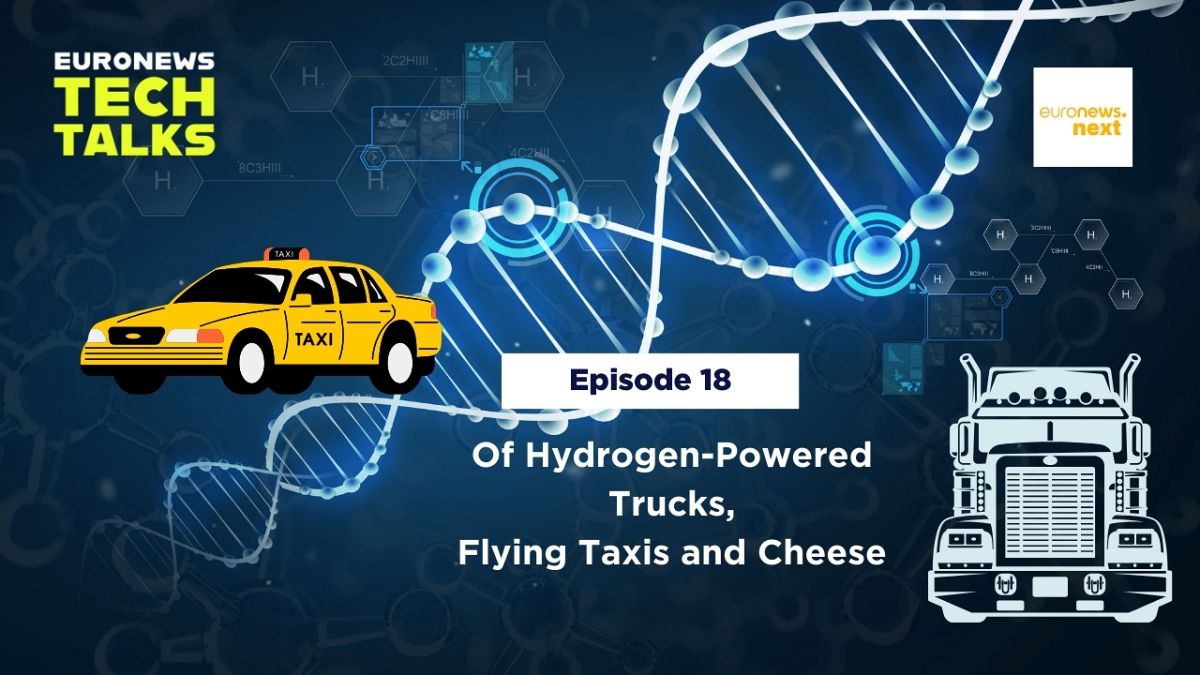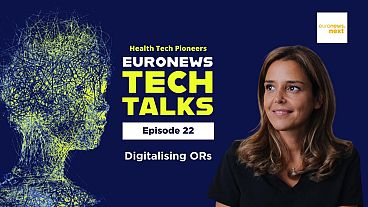The concept of trapping pure hydrogen in cells isn't just something out of a sci-fi movie anymore. Engineers are working hard on creating fuel cells for transportation that act like batteries, suitable for all sorts of vehicles like trucks.
In this Euronews Tech Talks episode, we chat with Michael Perschke, CEO of Quantron AG, about hydrogen-powered trucks and how he uses cheese metaphors to explain how they work.
A solution for the one of most polluting industries
Last November, at the 2023 Web Summit, Quantron AG announced a hydrogen-based refuelling joint venture with an investor called OilInvest.
OilInvest owns more than 2,000 filling stations across Europe that provide petrol, diesel, and other types of energy.
In this partnership, both parties will work together to upgrade and utilise the existing station network, including adding hydrogen-fuelling capabilities, allowing vehicles like cars and heavy trucks to seamlessly travel across Europe using either gaseous or liquid hydrogen as fuel.
The goal is to enhance the infrastructure for hydrogen-powered transportation across the continent - a green solution to one of the most polluting and essential industries.
"We believe for having good transport, especially across Europe, hydrogen is a very solid source of energy to allow long-distance trucking to go to zero emission", says Michael Perschke, CEO of Quantron AG.
Trucks have a bigger climate impact than all flights within the EU and would be the 6th largest emitter if they were an EU country.
What will the future of heavy cargo transportation powered by hydrogen look like?
“I think hydrogen trucks will always be a minority," says Perschke. "But what we will see, probably 10 to 15% of heavy-duty trucks running on hydrogen by 2040".
Perschke says as hydrogen production gets more efficient, the fuel cells will become cheaper.
He adds: "So we will probably see that for specific applications, hydrogen fuel cell trucks will be the most suitable technical solution."
Perschke believes that probably 70 to 80% of goods will be transported electrically in the future, but there will be 10 to 20% that will require a hydrogen solution due to turnaround times, refilling times, and cycle times.
While hydrogen-powered trucks promise emission reductions, there are some concerns. Production often depends on fossil fuels, undermining environmental benefits. The conversion efficiency is also lower than direct electric propulsion, raising questions.
Like milk and cheese
Seeking a simple way to explain how hydrogen can function as fuel, Perschke uses a dairy metaphor.
He compares hydrogen with cheese, while electricity is likened to milk.
He explains that milk needs to be consumed quickly and is sensitive when transported in its liquid form, much like electricity.
However, when milk is converted into cheese, it becomes easier to transport, can be stored for longer periods, and increases in value.
Similarly, hydrogen serves as a means of storing energy, much like cheese does with milk. By converting electrons (electricity) into hydrogen and storing them in a more stable form, such as liquid hydrogen, it becomes easier to transport and can be stored for longer periods.
This is particularly important in the context of renewable energy production, where there are peaks in energy generation from sources like solar and wind.
Green hydrogen acts as a buffering technology, allowing excess energy to be stored and used when needed, addressing the challenge of grid instability caused by fluctuations in renewable energy production.









